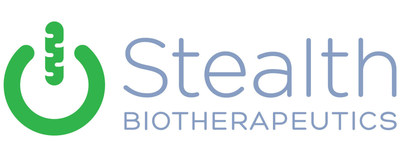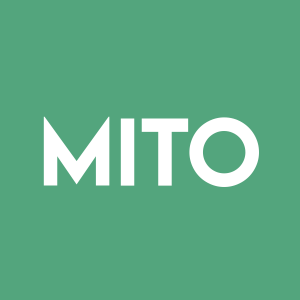Stealth BioTherapeutics Submits Elamipretide New Drug Application to FDA for Treatment of Barth Syndrome
Stealth BioTherapeutics Corp (Nasdaq: MITO) has submitted a New Drug Application (NDA) to the FDA for its lead product candidate, elamipretide, to treat Barth syndrome, an ultra-rare genetic disorder with no existing FDA- or EMA-approved options. This submission follows positive results from the SPIBA-001 clinical trial, which showed significant improvements in exercise tolerance and cardiac function. The company aims for dialogue with the FDA, acknowledging the existing data may not meet all the requirements for approval, but believes in its potential.
- NDA submitted for elamipretide, potentially addressing an unmet medical need for Barth syndrome.
- Positive clinical trial results showing improvements in exercise tolerance and cardiac function.
- Rare pediatric designation and fast track status granted by the FDA could accelerate approval process.
- FDA indicated that existing data may not support NDA review.
- Lack of identified trial design for further controlled data due to the ultra-rare nature of Barth syndrome.
Insights
Analyzing...
BOSTON, Aug. 24, 2021 /PRNewswire/ -- Stealth BioTherapeutics Corp (Nasdaq: MITO), a clinical-stage biotechnology company focused on the discovery, development, and commercialization of novel therapies for diseases involving mitochondrial dysfunction, today announced the submission of a New Drug Application (NDA) to the U.S. Food and Drug Adminstration (FDA) for elamipretide, the company's lead product candidate, for the treatment of Barth syndrome, an ultra-rare genetic condition with no FDA- or EMA-approved therapies.
"Children and young adults affected by Barth syndrome are suffering from life limiting, progressive cardiomyopathy, exercise intolerance, and debilitating fatigue for which there are no approved treatment options," said Chief Executive Officer Reenie McCarthy. "We initiated our Barth syndrome development efforts at the request of the Barth syndrome community. We respect the patient community's perspective regarding its tolerance for some uncertainty of benefit in considering therapies for this ultra rare disease, and with our NDA submission, have answered its petition that we submit our application. We know that the FDA has similarly heard the voice of these patients, and we look forward to continued dialogue with the FDA as it evaluates our submission for filing and review."
The NDA submission is based on results from the SPIBA-001 Phase 3 Retrospective Natural History Control Trial, which compared data from the open-label portion of the TAZPOWER Phase 2/3 clinical trial to matched natural history controls. SPIBA-001 met its primary and most secondary endpoints, demonstrating elamipretide-mediated improvements in assessments of exercise tolerance, strength and cardiac function that are unexpected in the natural course of this progressively debilitating disease. In addition, improvements were observed during the TAZPOWER Phase 2/3 clinical trial and open label extension in several surrogate and intermediate clinical endpoints that may be reasonably likely to predict clinical benefit for patients suffering from this serious disease, potentially supporting an accelerated approval pathway. Although the FDA has recommended that additional controlled data be generated to support NDA review, neither the FDA nor the Company has identified a feasible trial design due to the ultra-rare nature of this disease. In light of FDA's view that the existing clinical data are insufficient to demonstrate substantial evidence of effectiveness and would not support NDA review, there is no assurance that the FDA will file the NDA. Stealth believes, however, that the data could support an NDA review, and has accordingly submitted the NDA as requested by the Barth syndrome patient community.
Elamipretide was previously granted rare pediatric designation, fast track designation, and orphan drug designation by the FDA, and orphan drug designation by the EMA, for the treatment of Barth Syndrome.
About Barth Syndrome
Barth syndrome is an ultra-rare genetic condition characterized by cardiac abnormalities often leading to heart failure and reduced life expectancy, recurrent infections, muscle weakness and delayed growth. Barth syndrome occurs almost exclusively in males and is estimated to affect one in 200,000 to 400,000 individuals worldwide. There are currently no FDA- or EMA-approved therapies for patients with Barth syndrome.
About Stealth
We are a clinical-stage biotechnology company focused on the discovery, development, and commercialization of novel therapies for diseases involving mitochondrial dysfunction. Mitochondria, found in nearly every cell in the body, are the body's main source of energy production and are critical for normal organ function. Dysfunctional mitochondria characterize a number of rare genetic diseases and are involved in many common age-related diseases, typically involving organ systems with high energy demands such as the heart, the eye, and the brain. We believe our lead product candidate, elamipretide, has the potential to treat both rare metabolic cardiomyopathies, such as Barth, Duchenne muscular dystrophy and Friedreich's ataxia, rare mitochondrial diseases entailing nuclear DNA mutations, as well as ophthalmic diseases entailing mitochondrial dysfunction, such as dry age-related macular degeneration and Leber's hereditary optic neuropathy. We are evaluating our second-generation clinical-stage candidate, SBT-272, and our new series of small molecules, SBT-550, for rare neurological disease indications following promising preclinical data. We have optimized our discovery platform to identify novel mitochondria-targeted compounds which may be nominated as therapeutic product candidates or utilized as mitochondria-targeted vectors to deliver other compounds to mitochondria.
Forward-looking Statements
This press release contains forward-looking statements within the meaning of The Private Securities Litigation Reform Act of 1995. Such forward-looking statements include those regarding Stealth BioTherapeutics' plans, strategies and expectations for its preclinical and clinical advancement of its drug development programs; its expectations regarding regulatory interactions, including its belief that the existing data may provide sufficient evidence to support NDA review; and the potential benefits of Stealth BioTherapeutics' product candidates. Statements that are not historical facts, including statements about Stealth BioTherapeutics' beliefs, plans and expectations, are forward-looking statements. The words "anticipate," "expect," "hope," "plan," "potential," "possible," "will," "believe," "estimate," "intend," "may," "predict," "project," "would" and similar expressions are intended to identify forward-looking statements, although not all forward-looking statements contain these identifying words. Stealth BioTherapeutics may not actually achieve the plans, intentions or expectations disclosed in these forward-looking statements, and you should not place undue reliance on these forward-looking statements. Actual results or events could differ materially from the plans, intentions and expectations disclosed in the forward-looking statements as a result of known and unknown risks, uncertainties and other important factors, including: Stealth BioTherapeutics' ability to obtain additional funding and to continue as a going concern; the impact of the COVID-19 pandemic; the ability to successfully demonstrate the efficacy and safety of Stealth BioTherapeutics' product candidates and future product candidates; the preclinical and clinical results for Stealth BioTherapeutics' product candidates, which may not support further development and marketing approval; the potential advantages of Stealth BioTherapeutics' product candidates; the content and timing of decisions made by the FDA, the EMA or other regulatory authorities, investigational review boards at clinical trial sites and publication review bodies, which may affect the initiation, timing and progress of preclinical studies and clinical trials of Stealth BioTherapeutics product candidates; the possibility that the FDA will not file the Barth NDA for review; Stealth BioTherapeutics' ability to obtain and maintain requisite regulatory approvals and to enroll patients in its planned clinical trials; unplanned cash requirements and expenditures; competitive factors; Stealth BioTherapeutics' ability to obtain, maintain and enforce patent and other intellectual property protection for any product candidates it is developing; and general economic and market conditions. These and other risks are described in greater detail under the caption "Risk Factors" included in the Stealth BioTherapeutics' most recent Annual Report on Form 20-F filed with the Securities and Exchange Commission ("SEC"), as well as in any future filings with the SEC. Forward-looking statements represent management's current expectations and are inherently uncertain. Except as required by law, Stealth BioTherapeutics does not undertake any obligation to update forward-looking statements made by us to reflect subsequent events or circumstances.
Investor Relations
Stern Investor Relations
Janhavi Mohite, 212-362-1200
IR@StealthBT.com
![]() View original content to download multimedia:https://www.prnewswire.com/news-releases/stealth-biotherapeutics-submits-elamipretide-new-drug-application-to-fda-for-treatment-of-barth-syndrome-301361153.html
View original content to download multimedia:https://www.prnewswire.com/news-releases/stealth-biotherapeutics-submits-elamipretide-new-drug-application-to-fda-for-treatment-of-barth-syndrome-301361153.html
SOURCE Stealth BioTherapeutics Inc.








